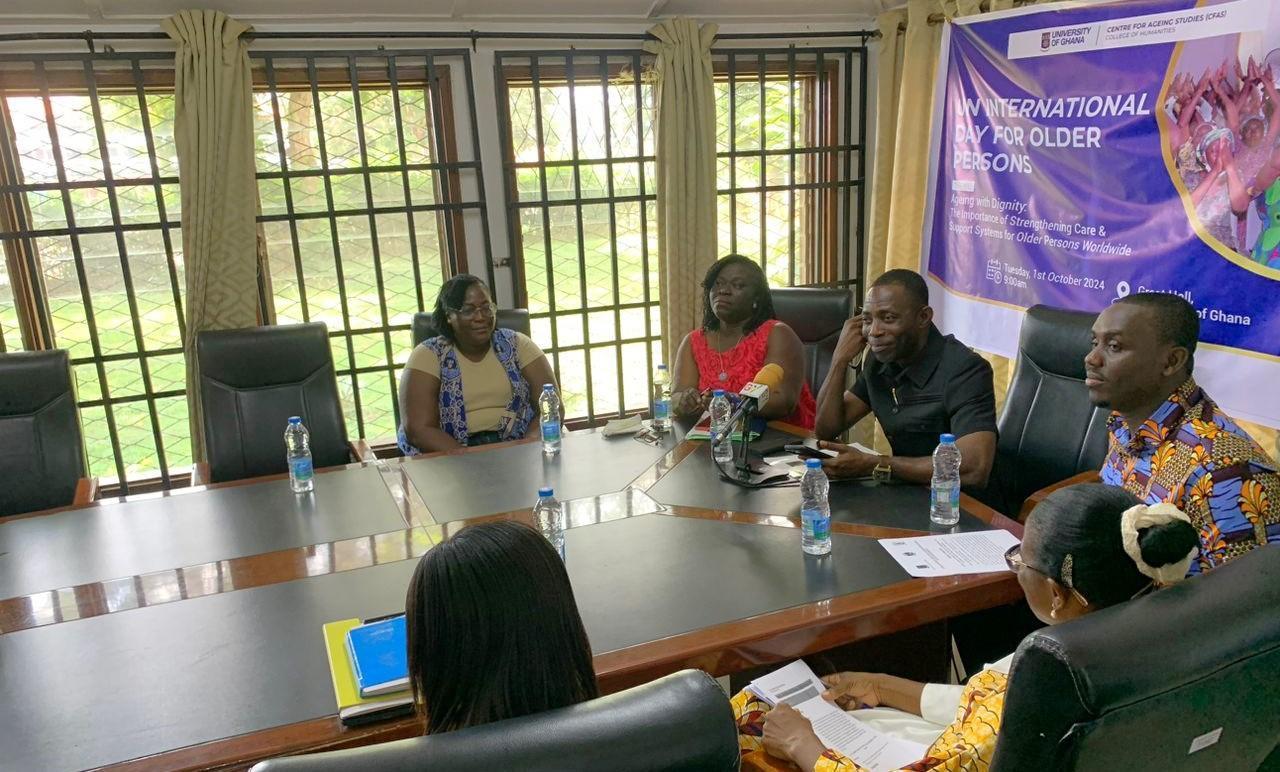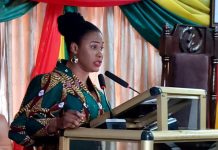Africa-Press – Ghana. The Centre for Aging Studies (CFAS) at the University of Ghana has called on the Government to invest in infrastructure that supports the mobility and accessibility of older adults.
The Centre said this should include enhancing public transportation systems and ensuring that public spaces were aged-friendly, enabling senior citizens to navigate their communities with ease.
Mr. Joseph Osafo, Director of CFAS, speaking at press briefing ahead of the Global observance of the 34th United Nations International Day of Older Persons (UNIDOP) on October 1, said the government should also strengthen healthcare systems to address aged-related needs.
The celebration will be on theme: “Aging with Dignity: The Importance of Strengthening Care and Support Systems for Older Persons Worldwide.”
Currently, Ghana’s elderly population (aged 60 and above) has increased significantly, reaching nearly two million individuals as of 2021.
This number is projected to rise to approximately 2.5 million by 2025 and 6.3 million by 2050, reflecting a growing demographic that now constitute about 7.2 per cent of the total population.
He said this significant growth emphasised the necessity for enhanced support systems to safeguard the well-being of older persons.
The Director said there should be increased access to social protection programmes and economic empowerment initiatives and enhanced support for caregivers and family members and the promotion of aged-friendly communities and infrastructure.
He said the Centre aimed to underscore the importance of national policies, legislation, family and community involvement in ensuring that older persons’ dignity, beliefs, needs and privacy were fully respected.
“Older adults must have the right to make informed decisions about their care and quality of life,” he added.
He said there was a pressing need to foster greater awareness regarding the global shortage of care workers and the challenges involved in establishing comprehensive care and support systems for older persons beyond the formal healthcare setting.
Mr Osafo said “we will engage in discussions about the challenges and opportunities associated with aging visa-a-vis the long-term care facilities and support available, drawing insights from caregivers’ expectation.”
The Director said the observance would focus on innovative initiatives that provided quality care and support systems for older persons, particularly those with conditions such as dementia.
He said they would promote specialised training and education for caregivers to meet the diverse health needs of older adults in Ghana.
He said they would advocate the recognition of caregivers’ diverse contributions, from family members providing unpaid care to professionals, delivering specialised service.
“It is vital to address the challenges faced by informal caregivers, especially women and promote policies that support them in balancing multiple responsibilities,” he added.
He said despite these advancements, older persons in Ghana faced significant challenges, including multidimensional poverty with approximately 25. 7 per cent of elderly individuals classified as multidimensionally poor.
Additionally, many elderly individuals live alone or were isolated due to changing family dynamics and urban migrations trends and the traditional systems of support that once existed were increasingly strained, leaving many older adults vulnerable.
He said as Ghana experienced this demographic shift, it was imperative that authorities prioritised policy interventions that enhanced social protection mechanisms and healthcare access for older persons.
He said the Centre was dedicated to conducting interdisciplinary research and providing resources that promoted healthy aging while addressing those pressing issues.
The Director encouraged younger generations to actively engage with older adults by offering social, mental and spiritual support.
He said caregivers must be equipped with resources and training to provide better care for older adults.
For More News And Analysis About Ghana Follow Africa-Press







